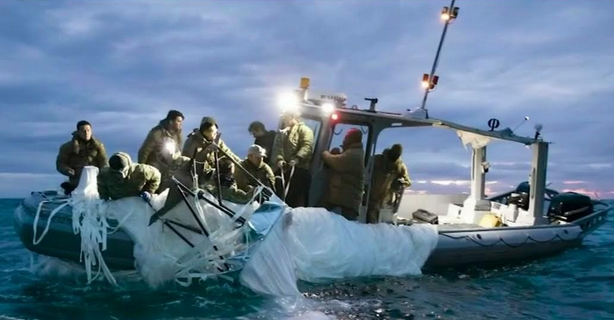Photo: YouTube
We have just exited Phase 2 of the balloon incident. In Phase 1, “Discovery,” the Biden administration went into action mode on finding that a Chinese “spy” balloon had crossed over half the US. An air force jet shot the balloon down, displaying Cold War-style toughness with China. In Phase 2, “Evaluation,” new facts have emerged that shed further light on the episode. To wit:
· US intelligence was aware of the balloon from the moment it entered US airspace. Intelligence officials did not consider the balloon a particularly threatening weapon, aware that at least four times in the recent past—including three on Trump’s watch—such intrusions had occurred, all without incident. In fact, senior Trump officials, by their own admission, were completely unaware of those incidents.
· Biden’s hesitancy to shoot down the balloon had as much to do with rabid Republican charges of weakness as with concern about causing debris to fall over populated areas.
· Beijing accepted responsibility for violating US territory, but the larger question of authorization for balloon missions remains. Chinese balloon launches may not be authorized at the highest levels—that is, by Xi Jinping—but may be under lower-level authority, military or civilian. Students of bureaucracy will recognize this possibility immediately: a government agency that acts autonomously, without top-level oversight. It’s business as usual, separate from (in this case) the foreign ministry. Xi surely was aware of balloon activity in general, but not its daily schedule. After all, US officials say Chinese balloons have been spotted in 40 countries on five continents in recent years. That suggests a busy balloon unit that routinely acts on its own—which might even mean sabotaging a diplomatic event that a unit’s leader happens to oppose.
· Thus far the Biden administration has not said the balloon captured important US security data. It might have been a weather balloon and might have been spying on US military installations. A high-altitude balloon is capable of doing both, though its capabilities would seem to be far lower than those of Chinese satellites and other intelligence-gathering devices.
My conclusion: The Chinese balloon was not a significant security threat, the incident should not have been treated as though it was one, and the entire matter should instead have been put on Secretary of State Antony Blinken’s agenda when he visited Beijing as scheduled. That’s what diplomacy is all about: heading off crises. During and since the Cold War, the US and China have had plenty of incidents of far greater magnitude that were settled diplomatically, such as the mistaken US bombing of China’s embassy in Belgrade in 1999 and the US shooting down of a Chinese jet over Hainan in 2001. Both those incidents involved loss of life. China’s chief foreign policy official, Wang Yi, called Blinken to urge a calm, “professional” approach to their upcoming meeting in light of the balloon incident. But the Americans chose the opposite course, postponing Blinken’s trip and feeding the anti-China sentiment that has swept Congress.
Now we are in Phase 3 of the incident: “Blaming.” The Chinese, not to be outdone by American outrage, charge that US balloon intrusions over China are a “common occurrence,” more than 10 times last year. (The Biden administration denied the charge but referred only to “surveillance” balloons, so China’s claim might be accurate.) China is also using the incident to arouse nationalist feelings—a predictable response to accusations. In an effort to move from defense to offense, Beijing media are stressing the American overreaction, the misguided emphasis on the “China threat,” and the effort to “fan the flames” of conflict.
Expect plenty of the same language on the US side, especially but not exclusively from far-right Republicans. They have been introducing ideologically-driven bills in Congress directed at “the Chinese Communist Party”—bills that would, for example, prevent mainland Chinese from acquiring land, recognize Taiwan as an independent state, limit petroleum product sales to China, prohibit federal support of schools that hire Chinese instructors “funded” by the CCP, and demand reimbursement from China of US COVID-19 aid.
Thus does the spiral of conflict continue, with few voices of reason being heard to stop it.
Mel Gurtov, syndicated by PeaceVoice, is Professor Emeritus of Political Science at Portland State University and blogs at In the Human Interest.






